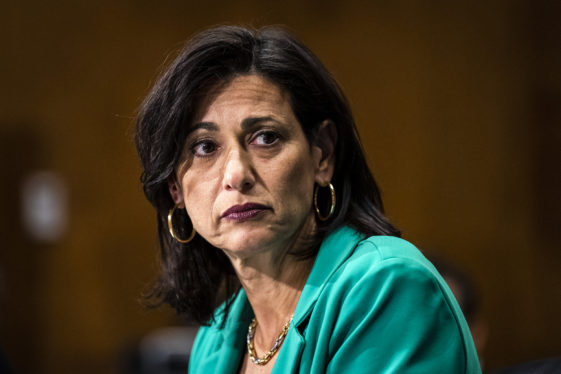
Enlarge / CDC Director Rochelle Walensky testifying before Congress. (credit: Drew Angerer)
On Friday, the Centers for Disease Control and Prevention Director Rochelle Walensky announced that she’d be stepping down from her position at the end of June. The announcement came the same day that the World Health Organization announced that COVID no longer constituted an emergency, and Walensky’s resignation letter made reference to that: “The end of the COVID-19 public health emergency marks a tremendous transition for our country, for public health, and in my tenure as CDC Director.”
Walensky took on the directorship of the CDC at a very challenging time. The agency was dealing with a number of self-inflicted wounds, such as the failure of its initial tests for SARS-CoV-2 and confused advice on the value of masks. Layered on top of that was a degree of political interference from a White House that wanted to minimize the risk and damage of the pandemic. This included the sidelining of CDC experts who gave realistically grim warnings at the start of the pandemic and the editing of public health guidance by White House political appointees. By the start of the Biden administration, the once-flagship public health organization had lost a lot of its credibility and suffered from severe morale problems.
Walensky took on the task of restoring trust and reforming the agency, starting a restructuring program meant to get CDC to focus on getting the data needed to craft public health advice rather than generate academic publications. Better communication to the public was also a major goal of the reforms.
Read 3 remaining paragraphs | Comments



